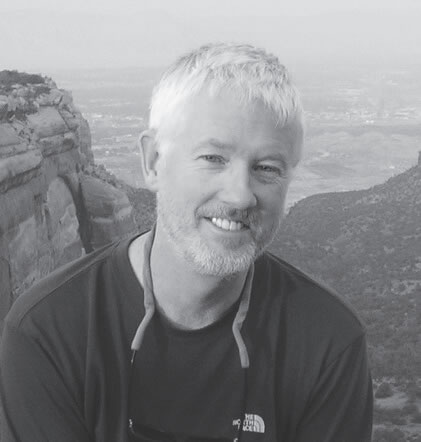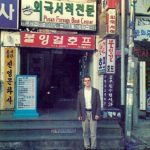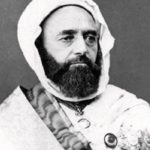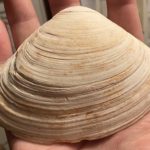Peter Chilson is the author of two books about Africa: The travelogue Riding the Demon: On the Road in West Africa, and the fiction collection Disturbance-Loving Species
, which won the Bread Loaf Writers’ Conference prize for short fiction. His essays and fiction have appeared in The American Scholar, Ascent, Audubon, Best American Travel Writing, Gulf Coast, North American Review, thesmartset.com, and elsewhere. He is completing a book about Africa’s colonial borderlands. In April and May 2012 he went to Mali on behalf of The Pulitzer Center for Crisis Reporting and Foreign Policy Magazine to write about the rebellion in Mali’s northern desert lands.
How did you get started traveling?
When I graduated from college in 1984, I desperately wanted to travel. I wanted to go someplace radically different from what I knew. I wanted to push my limits, develop some understanding of the wider world. This desire goes with wanting to be a writer. Maybe I also felt I had something to prove to myself, having grown up in a ski resort town in Colorado (Aspen), where life was a bit isolated and easy. After college, I had no money so I applied to the Peace Corps. I had some French language ability and applied to the French West Africa program. I worked on a daily newspaper in Upstate New York for a year while I waited for the Peace Corps to process my application. They sent me to Niger, West Africa in 1985. I’ve been traveling back and forth ever since.
How did you get started writing?
My first real writing gig was at my local weekly newspaper, The Aspen Times, when I was 16 years old. I wrote a letter to the editor protesting a column by one of the paper’s writers, who was, I felt, unfairly critical of high school students in the community. He said something about us all being lazy, into drugs, that sort of thing. In my letter I wrote that many of us were athletes and good students with ambitions, and that many students had gone on further their educations and have careers. A few weeks later, I went to the paper to ask for a job as a reporter. I had no idea what I was doing. I just wanted to get involved in writing. The editor remembered my letter and asked me to write a column on the lives of high school students. I did it for a year — 800 words, once or twice a month. I loved it.
What do you consider your first “break” as a writer?
I was lucky to win a prize in 1996 that led to the publication of my first book. This was the Associated Writing Programs book award for creative nonfiction. The book was Riding the Demon. The prize helped open some doors for me, helped me establish a track record, made it a bit easier to publish. The book helped me land a teaching job at Washington State University, though it did not come out until a year after I started work there. But the lifestyle is flexible and gives me the time I need to travel, gather material, and write.
As a traveler and fact/story gatherer, what is your biggest challenge on the road?
Traveling in Africa, certainly the biggest challenge is just staying healthy. Usually, I am on the road for a month or more, and I end up with stomach problems at least twice. Illness drags down your spirits and energy. So I carry the necessary medicine with me. I do everything I can to be as careful and hygienic a possible and I still get sick.
Language is also an issue. I speak decent French, but I always try to pick up something of the local language wherever I am. This is both a challenge and fun. In Africa, people love to talk, tell stories, and laugh. So, even if I am making mistakes, making a fool of myself, people still appreciate a foreign traveler’s efforts to communicate in their own language.
What is your biggest challenge in the research and writing process?
I’ve been writing about Africa these past many years. There, my biggest challenge is overcoming language issues. I do a lot of work in French, both in interviewing people and in with documents such as old explorers notes that have not been translated and official archival material in countries I visit. My French is good but it is always taxing working in another language. And in Africa there are more than 2000 native languages to the continent, so it is impossible in any country to truly get to know a local language without spending years there. So I use interpreters. They are really helpful and necessary for gathering material, but something gets lost in the translation. It is hard through an interpreter to pick up the nuances of what someone is trying to say in their own language.
What is your biggest challenge from a business standpoint?
The business challenges are a bit of everything: Tracking down editors so I can be paid, getting letters of accreditation from magazines after an assignment has been made. Getting out there and pitching stories, selling myself and hustling for assignments can get tiring. The business of writing is not always research and writing, but also the logistics of finding a place for your work in the marketplace. That process never fails to offer lessons in humility. The editing process, however, has almost always gone well for me. I love a tough editor who pushes me to be a better, more disciplined writer. Being edited is another lesson in humility, but I prefer to look at it as an opportunity to make the piece better. I’ve been blessed. Most editors I’ve worked with have been great.
Have you ever done other work to make ends meet?
For years, before I got a steady teaching job, I worked as a newspaper reporter, freelance journalist, magazine editor, technical editor, and itinerant community college writing teacher. I am very, very lucky to have always been able to find work that is close to my passion, which is writing.
What travel authors or books might you recommend and/or have influenced you?
There are so many writers whose work I love. But four I go back to again and again are Luis Alberto Urrea, Joan Didion, Ian Frazier, and Graham Greene. Urrea has written so powerfully in fiction and nonfiction about the United States-Mexico border. I think he is one of the freshest voices now writing in this country. Joan Didion’s nonfiction in many ways taught me how pull information together in a good nonfiction story that focuses on human interest, on people. Ian Frazier is one of my favorite travel writers, comfortable on the Great Plains and in Siberia. I love his self-deprecation. And Graham Greene is one of the greatest of literary travelers. He’s a strong critical observer and his fiction and nonfiction helped me develop that critical eye.
What advice and/or warnings would you give to someone who is considering going into travel writing?
I push my students to read as much as they can and to write as much as they can. As much as possible of both of those two things contributes to strong writing in the end. So, I am always pushing work on the student newspaper, personal journals, blogs, or volunteering to keep the minutes for some club meeting. Anything to get them writing. And I push them to take risks — to try new things in their writing and to try to move outside their normal worlds to meet new people and experience new things. This willingness to experiment and explore new areas is where travel starts. I have one assignment, for example, that requires students to interview and write a short profile of someone who is not a native speaker of English. Some students embrace it, others resist. The result is always interesting.
What is the biggest reward of life as a travel writer?
Even if I were to stop traveling today, the rewards I feel from years of wandering and writing keep coming. The experience of learning other languages encourages the traveler to empathize and look at life from another perspective. I like to think I walk around with that perspective largely because of the traveling I have done, the places I’ve seen, the people I have met in Africa, Europe, Asia (parts of Turkey, anyway) and here in my own country. The language issue is a really important payoff for me. Knowing French gives me greater ability to wander other parts of the world and be comfortable. I’d really like to learn Spanish.
The writing is a special payoff. I still get letters from readers about my two books and responses to essays and stories I’ve published. Most are positive and some are disgruntled, which can be fun, too. Like the woman who read Riding the Demon and who insisted that some of the experiences I had in the town of Zinder, in Niger, could not have been true because she did not experience them. She was particularly upset that I had written about the old colonial buildings abandoned by the French and left to decay by the Africans. In some cases the buildings had become public toilets. She did not like that. I wrote back and told her, “Your experience was different from my experience. Isn’t that wonderful?”





